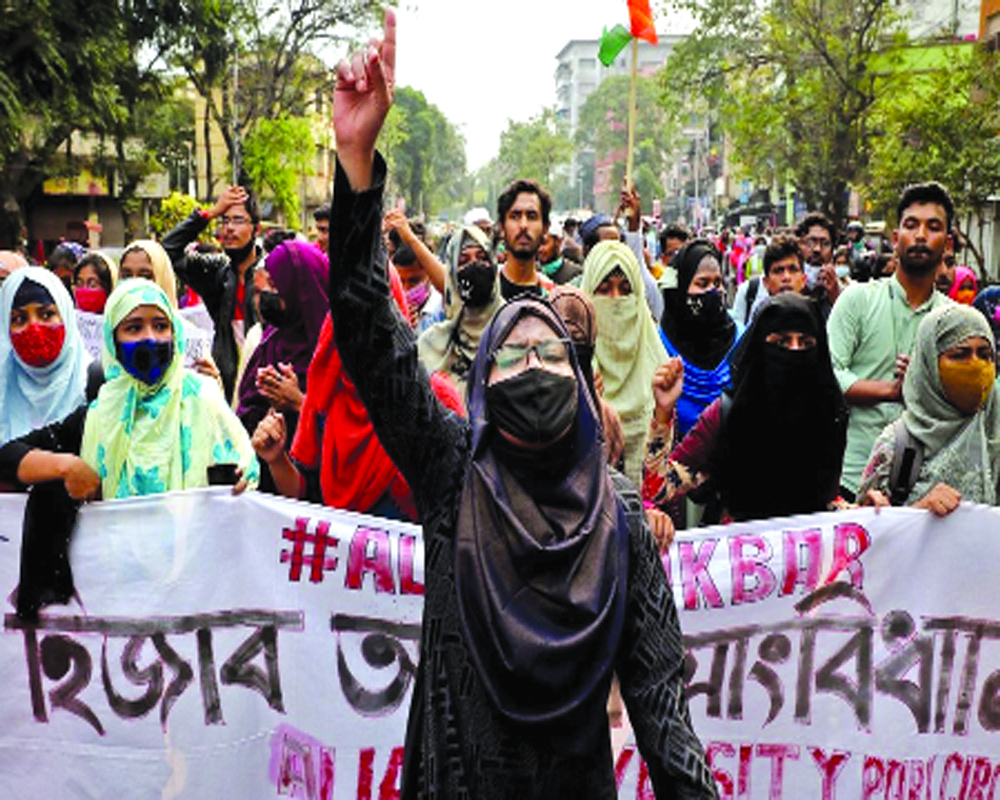The need is to promote secularism among the citizenry without State interference
The Karnataka hijab controversy has triggered a spate of petitions in courts. One of them is by a law student who wants the Supreme Court to direct the Centre and States to implement a common dress code for all registered and recognised schools and colleges in the country. He believes the code alone can preserve the secular character of educational institutes. It is his understanding that students insisting on attending classes wearing accessories citing essential religious practice can erode that character. The PIL says the common dress code can also curtail the menace of casteism, communalism and fundamentalism. The petitioner has submitted that educational institutes are secular public places and are meant to impart knowledge and wisdom, employment, good health, and contribute to nation-building, not for following essential and non-essential religious practices. Irrespective of how the apex court deals with this petition, it is reflective of the intellectual confusion that prevails among thinking minds in the country. The problem revolves around the phrase, ‘being secular’. It is so smudged by politics of recent years that its meaning is by no means clear. In the context of the hijab controversy, Devadatt Kamat, the lawyer representing the Muslim girls in the hijab case, is in the middle of a storm for his “secular” action. The local Ramakrishna Ashram has, however, come out in his support, saying he is doing a professional duty and cannot be branded “as a cause against Hindu religion”.
On the other hand, the Muslim wing of the RSS came out in support of the burqa-clad college girl who challenged some youth clad in saffron shawls opposing the hijab. If both are “secular” actions, then the problem should not have arisen in the first place. While dealing with the hijab case, the courts should be requested to re-visit the definition of ‘secularism’ in so far as wearing religious accessories in schools and colleges is concerned. There is secularism that exists without any interference from the State. Here, it does not matter if students wear a hijab, patka, bindi or a cross. There is also secularism that exists with clear interference from the State. In this case, students are not allowed to wear essentials of religious practice. Either brand of secularism does not affect students’ studies. However, they deeply impact their character and their right to religion and choice. A common dress code that the PIL demands is by itself not secular; it represents uniformity and, at its political extreme, homogeneity. Its secular character depends on how it deals with the daily use of essentials of religious practice. There is also the issue of the universal dress code applying to students of minority institutions where, by definition, students wear religious essentials. And what about the assembly prayers and moral science classes which defer to various religions in various schools? The need is to promote secularism without State interference. That takes care of the religion and choice questions.


























